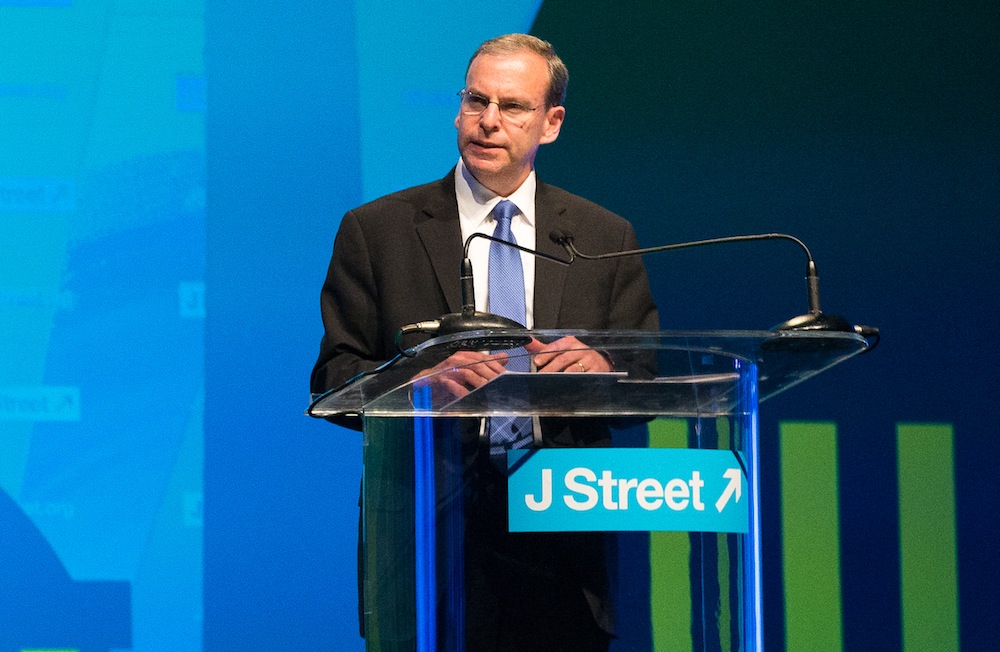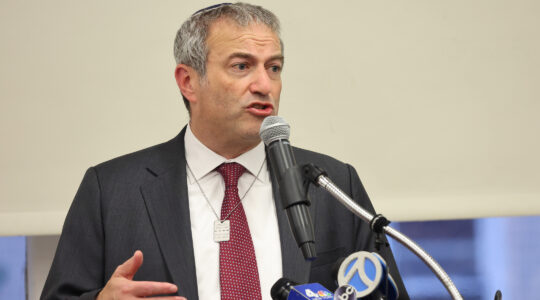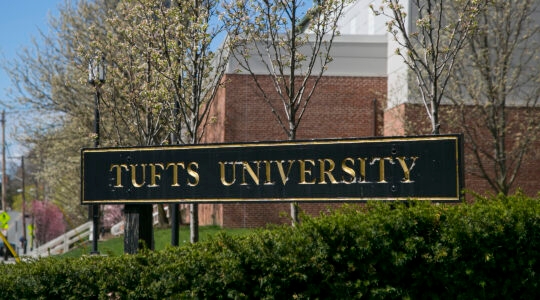WASHINGTON (JTA) – With Prime Minister Benjamin Netanyahu facing escalating criticism and pressure from the White House, he could use some help from Israel’s erstwhile allies in the American Jewish community — especially those with sway in liberal and Democratic circles.
But several leading Jewish liberal critics of Netanyahu are working to rally American Jewish opinion against him by stepping up their condemnations of the prime minister and calling on the United States to ratchet up the pressure on Israel.
The epicenter of this liberal Jewish push is the annual J Street conference in Washington, where in a speech on Saturday night to 3,000 attendees, the group’s executive director, Jeremy Ben-Ami, accused Netanyahu of harming the U.S.-Israel relationship through “partisan gamesmanship” and called on the Obama administration to put forth the parameters for a resolution to the conflict at the U.N. Security Council.
Ben Ami’s remarks came days after another harsh Netanyahu critic, Peter Beinart, called for the Obama administration to “punish” Israel on several fronts — including by backing Palestinian “bids” at the United Nations and denying visas to and freezing the assets of Israeli settler leaders. Beinart also urged American Jews to ensure that Netanyahu and members of his Cabinet are met with protesters at Jewish events.
While more establishment liberal and centrist Jewish organizations show no signs of writing off the prime minister or endorsing such aggressive steps, some have expressed concerns about Netanyahu’s 11th-hour campaign tactics — specifically his vow that no Palestinian state would be established on his watch and his urging supporters to counter the “droves” of Arabs coming out to vote.
Leaders of the two largest religious streams in American Judaism, the Reform and Conservative movements, both issued statements last week condemning Netanyahu’s comments about Arab-Israeli voters.
“Because we proudly and unreservedly continue our unflagging support for the State of Israel, its citizens and its values, we must condemn the prime minister’s statement, singling out Arab citizens for exercising their legitimate right to vote,” the Conservative movement’s Rabbinical Assembly said in a statement Thursday. “It is incumbent upon Jews around the world to denounce the prime minister’s divisive and undemocratic statement and we do so here.”
Rabbi Rick Jacobs, the president of the Union for Reform Judaism, called the statement “disheartening” and a “naked appeal to his hard-right base’s fears rather than their hopes.”
For his part, Netanyahu moved quickly post-election to contain the damage from his pre-election remarks, holding interviews with several U.S. media outlets in which he insisted that he remains committed to a two-state solution but circumstances do not allow for one because of Palestinian intransigence and ongoing turmoil across the region. In a sign that Netanyahu was seeking to send the word out beyond his conservative base, the prime minister not only did an interview with Fox News, but talked with two leading liberal media outlets, MSNBC and NPR.
Several mainstream centrist organizations — including the American Israel Public Affairs Committee, the Conference of Presidents of Major American Jewish Organizations and the Anti-Defamation League — were quick to embrace Netanyahu’s post-election insistence. AIPAC criticized the Obama administration for having “rebuffed” the prime minister’s efforts to put relations with the United States back on track.
But Denis McDonough, the White House chief of staff who spoke Monday at the J Street conference, held his ground.
“We cannot simply pretend that those comments were never made, or that they don’t raise questions about the prime minister’s commitment to achieving peace through direct negotiations,” McDonough told J Street.
Netanyahu has also sought to contain the damage from his Election Day appeal to supporters to counter the “droves” of Arabs heading to the polls. Netanyahu said he did not intend to suppress Arab voters, only to inspire his base, and on Tuesday he apologized directly to a group of Arab-Israeli leaders gathered at his residence in Jerusalem.
Yet even as Netanyahu sought to defuse the controversy over his remarks, reports suggested that the makeup of his emerging coalition could keep U.S.-Israeli tensions boiling on several fronts.
The first party he invited into the government was Jewish Home, which rejects a Palestinian state. Another likely coalition partner, Avigdor Liberman’s Yisrael Beiteinu, who recently said that disloyal Arab-Israelis should be beheaded. The coalition government is also likely to include include haredi Orthodox parties, whose rejection of non-Orthodox streams has been a cause of tension with U.S. Jews for decades.
Still, the mood at the J Street conference was one of jubilance in defeat, as speaker after speaker spoke of “clarity” now that Netanyahu had repudiated the two-state solution.
“There’s more fuel in advocacy movements when you’re fired up in opposition to something,” Ben-Ami told JTA.
One star of the conference was Stav Shaffir, the 29-year old Labor Party member whose pre-election Knesset speech accusing Netanyahu’s government of abdicating Zionist leadership by neglecting the marginalized went viral online.
Saying her message to J Street was one of hope, Shaffir told reporters that when she encountered a depressed conference-goer, she counseled activism.
“I don’t accept despair as a political strategy,” she said.
JTA has documented Jewish history in real-time for over a century. Keep our journalism strong by joining us in supporting independent, award-winning reporting.






